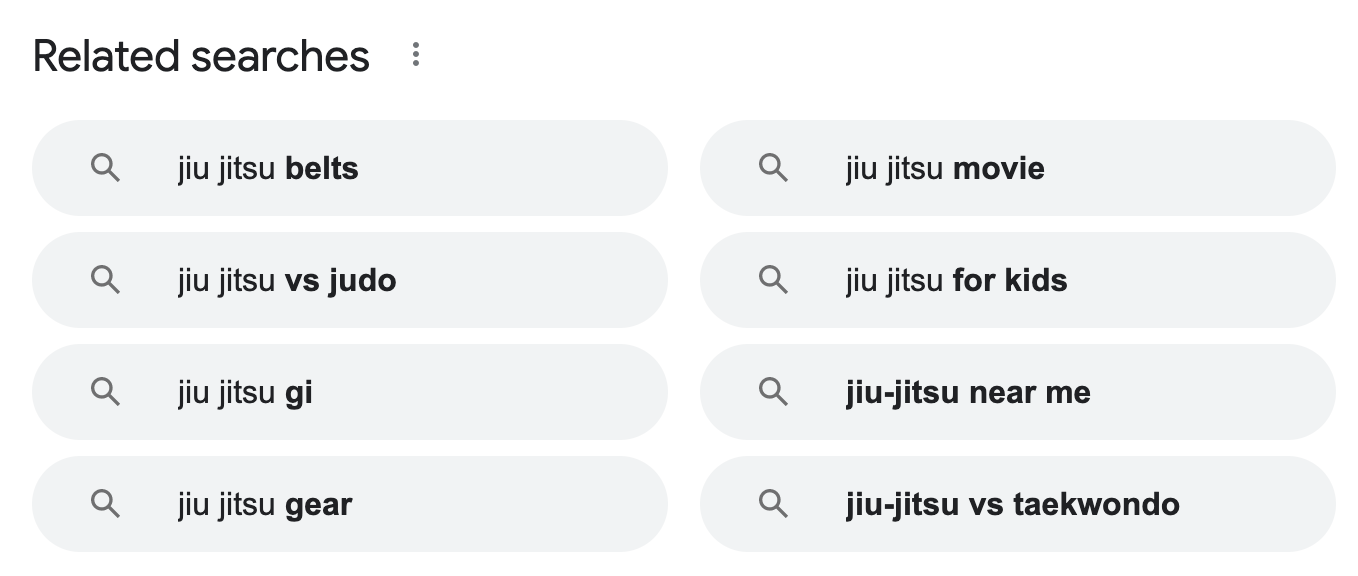
In the vast realm of digital marketing, the language you use holds the key to unlocking the door to your target audience. Keywords are the currency of online visibility, shaping the connection between your contentand the inquiries of your audience. In this article, we will explore simple ways to find more keyword ideas, ensuring that your content remains not just relevant but resonant with the ever-evolving needs of your audience. Staying ahead in the dynamic landscape of the internet requires a constant influx of fresh keyword ideas.
What Is Keyword Research?
Keyword research stands as the cornerstone of effective SEOstrategies, a dynamic process that delves into the words, queries, and phrases users actively seek in their online journeys. At its core, a keyword is not just a word; it's a gateway to understanding user intentand catering to the ever-evolving needs of an online audience.
The essence of keyword research lies in deciphering the language users employ during searches, encapsulating the spectrum of user queries that possess search volume. Connecting these keywords to a website and its pages is a meticulous task that revolves around aligning content with search intent. It's about ensuring that users find precisely what they seek, effortlessly navigating the vast landscape of online information.
Keyword research doesn't stop at mere identification; it extends into the realm of categorization. This involves placing search queriesinto different stages of a user's journey and distinct categories of search, including transactional, navigational, and informational. Each category serves a unique purpose, providing users with tailored results based on their specific needs and intents.
The significance of good keyword research becomes apparent in its ability to empower users:
- Facilitating Seamless Shopping Experiences -For online shoppers, effective keyword research ensures they find the right product page swiftly, transforming intent into a successful transaction.
- In-Depth Exploration for Information Seekers -Users searching for 'how-to' guidance can seamlessly discover pages offering comprehensive explanations of processes, enriching their understanding.
- Unveiling Insights about Entities -Whether it's a person or a brand, meticulous keyword research unveils comprehensive information, aiding users in their quest for detailed insights.
Why Keyword Research Is Important For SEO?
In the vast landscape of the internet, where information reigns supreme, search engines stand as the gatekeepers to an ocean of knowledge. Google, being the predominant force, is not merely a search engine; it is an intricate information retrieval system designed to connect users with the most pertinent answers to their queries. This focus on delivering satisfaction underscores the essence of Search Engine Optimization(SEO).
At the heart of any successful SEO strategylies good keyword research. It is the linchpin that allows businesses to establish a profound connection with their potential customers and audience. The pivotal question that frames this connection is rooted in understanding the audience: What are their wants, needs, concerns, and the problems that keep them awake at night? Herein lies the crux of keyword research – an extension of comprehending your audience by delving into the phrases, keywords, or queries they utilize to seek solutions.
Keyword research isn't solely about understanding; it's about identifying opportunities. By deciphering what your audience is actively searching for, you gain insights into unexplored areas of business. This, in turn, enables you to strategically allocate attention and resources to areas with the highest potential for engagement and conversion.
Moreover, the importance of keyword research extends beyond the mere identification of opportunities. It serves as a compass, guiding your SEOefforts by helping you calculate the return on investment. Can a particular keyword deliver relevant traffic that has the potential to convert into a desired end goal? What is the estimated traffic volume, and how much is each visitor worth to your business? These are the questions that keyword research equips you to answer, making it the ultimate business research tool in the digital age.
Explore Google Autocomplete
Google Autocomplete, a dynamic feature of the world's most popular search engine, has become an integral part of the user experience. As users type their queries into the search bar, Google Autocomplete predicts and suggests potential completions based on popular and relevant searches. This feature not only streamlines the search process but also provides invaluable insights into the collective queries of internet users. Let's embark on a journey to explore Google Autocomplete, understanding its significance and unveiling the steps to leverage its power.
Significance Of Google Autocomplete
- Real-time User Insights - Google Autocomplete reflects real-time, user-generated queries, offering a glimpse into the current interests and concerns of the online community. The suggested completions are a reflection of the most common and relevant searches, making it a treasure trove for businesses aiming to stay ahead of trends.
- Enhancing User Experience - For users, Autocomplete is a time-saving feature that helps them formulate queries more efficiently. Businesses can leverage this by aligning their content with the suggested completions, ensuring it resonates with what users are actively searching for.
Steps To Explore Google Autocomplete
- Start with a Relevant Query - Begin by entering a core keyword or topic related to your industry, product, or content focus into the Google search bar.
- Observe Autocomplete Suggestions - As you start typing, observe the dropdown menu that appears beneath the search bar. These are the Autocomplete suggestions generated in real-time.
- Analyze Suggestions for Trends - Pay attention to the suggested queries and identify patterns or recurring themes. This analysis can unveil emerging trends and popular topics within your niche.
- Expand Your Keyword Pool - Incorporate the identified Autocomplete suggestions into your keyword strategy. This not only broadens your keyword pool but also ensures that your content aligns with what users are actively seeking.
- Utilize Long-tail Keywords - Long-tail keywords, often found in Autocomplete suggestions, can be valuable for targeting specific, niche audiences. Incorporate these into your content to capture more focused search traffic.
Mine Related Searches
Google's search engine, a vast repository of information, offers more than just direct answers to queries. A hidden gem within the search results lies in the "Related Searches" section, a valuable resource for those keen on discovering additional layers of information and optimizing their online presence. Let's embark on a journey to mine related searches effectively and extract insights that can elevate your content and digital strategy.
Understanding The Significance
- Diversification of Keywords - The "Related Searches" section is a goldmine for diversifying your keyword strategy. It unveils variations and alternative terms that users commonly associate with your initial search query.
- Content Ideation - Explore related searches to spark new ideas for your content. Uncover potential topics or angles that might not have been apparent initially, enriching your content calendar with fresh perspectives.
- User Intent Insights - Analyzing related searches provides valuable insights into user intent. By understanding the nuances of what users are seeking, you can tailor your content to better align with their needs and expectations.
Steps To Mine-Related Searches
- Conduct a Targeted Search - Start by entering a relevant keyword or topic into the Google search bar. This could be a broad industry term or a specific query related to your content focus.
- Explore "Related Searches" - Scroll to the bottom of the search results page to find the "Searches related to..." section. Here, Google presents additional keywords and phrases related to your initial search.
- Identify Patterns and Themes - Analyze the related searches for patterns and recurring themes. This step helps you identify overarching topics of interest within your niche.
- Expand Your Keyword Arsenal - Incorporate the identified related searches into your keyword strategy. This not only broadens your keyword arsenal but also ensures that your content resonates with a diverse range of user queries.
Strategic Implementation
- Content Optimization- Tailor your existing content or create new pieces based on the insights gained from related searches. This ensures that your content remains aligned with current user interests.
- SEO Refinement - Use the identified related searches to refine your SEO strategy. Incorporate these keywords naturally into your content, meta tags, and headers to enhance your website's visibility.
- Competitive Analysis - Leverage related searches to conduct competitive analysis. Understand what topics and keywords your competitors are targeting, and identify opportunities to differentiate your content.
Utilize Keyword Research Tools
In the intricate realm of digital marketing, the mastery of keyword research is akin to possessing a compass that guides your online journey. However, the manual exploration of keywords can be a daunting task, especially in a landscape where user behaviors evolve rapidly. This is where keyword research tools emerge as indispensable assets, streamlining the process and empowering marketers and content creators with valuable insights. Let's delve into the importance of utilizing these tools and explore examples based on specific purposes and needs.
Keyword research tools provide data-backed insights into search volume, competition, and trends. This data forms the foundation for informed decision-making, guiding your content strategyand SEO efforts. Manual keyword research is time-consuming, and the sheer volume of data can be overwhelming. Keyword research tools automate and streamline the process, allowing you to focus your efforts more efficiently.
Understanding what keywords your competitors are targeting is crucial. Keyword research tools enable you to analyze competitor strategies, identify gaps, and capitalize on opportunities within your niche. Long-tail keywords, often overlooked but highly valuable, can be challenging to identify manually. Keyword research tools excel in uncovering these specific and often more conversational queries.
With the rise of voice-activated search, it's essential to tailor your content for this trend. Keyword research tools help you identify conversational and voice-friendly keywords that align with user behavior.
Examples Of Keyword Research Tools Based On Purpose
- Google Keyword Planner - A versatile tool providing insights into keyword search volume, competition, and trends. Ideal for understanding the broader landscape.
- SEMrush -This tool not only offers keyword insights but also allows you to delve into your competitors' strategies, uncovering the keywords they target and the success of those campaigns.
- AnswerThePublic -A unique tool that generates content ideas by visualizing the questions users have about a particular topic. Ideal for content creators seeking inspiration.
- Ubersuggest -This tool specializes in uncovering long-tail keywords and offers insights into search volume, CPC, and competition, making it valuable for niche targeting.
- Moz Local -If your focus is on local search optimization, Moz Local helps you manage your business listings and discover keywords that resonate with your local audience.
Strategic Implementation Of Tools
- Regular Analysis and Adaptation - Utilize keyword research tools regularly to adapt to evolving trends and user behavior. What works today may not work tomorrow, and staying proactive is key.
- Integration with Content Strategy - Seamlessly integrate the insights gained from keyword research tools into your content strategy. Ensure that your content not only aligns with search intentbut also remains agile in response to industry shifts.
Stay Social
In the dynamic and interconnected world of digital marketing, staying social is not just a recommendation; it's a strategic imperative. Social mediaplatforms, with their vast user base and real-time conversations, offer a goldmine of insights that extend beyond engagement metrics. One often overlooked aspect is the language users employ on these platforms, which provides valuable clues for keyword research. Let's explore the importance of staying social and how toeffectively mine social media for keyword insights.
The Significance Of Staying Social
- Real-Time User Engagement - Social media platforms are hubs of real-time conversations. Monitoring these interactions provides a direct line to current trends, user sentiments, and emerging topics within your niche.
- Understanding User Language - Users express themselves on social media in a way that mirrors their natural language. By immersing yourself in these conversations, you gain an understanding of the phrases, terms, and keywords that resonate with your target audience.
- Identifying Emerging Trends - Social media is a breeding ground for trends. Whether it's a viral hashtag or a new industry buzzword, staying social allows you to identify emerging trends that can inform your keyword strategy.
Steps To Mine Social Media For Keyword Insights
- Choose Relevant Platforms - Identify the social media platforms most relevant to your industry and target audience. Different platforms cater to distinct demographics, so focus your efforts where your audience is most active.
- Listen and Engage - Actively listen to conversations on social media. Engage with your audience, respond to comments, and participate in discussions. This not only enhances your brand presence but also provides firsthand insights into user language.
- Monitor Hashtags and Trends - Keep a close eye on trending hashtags and topics within your industry. These trends often come with associated keywords that can be integrated into your content strategy.
- Utilize Social ListeningTools - Leverage social listening tools like Brandwatch, Hootsuite, or Mention to track keywords, brand mentions, and industry discussions. These tools automate the process of monitoring social media for relevant keywords.
Strategic Implementation Of Staying Social
- Content Alignment - Infuse the language and keywords discovered on social media directly into your content. This ensures that your messaging aligns with the way your audience naturally expresses themselves.
- Adaptation to Conversational Tone - Social media language is inherently conversational. Adapt your keyword strategy to include more colloquial and conversational terms, especially if your target audience engages in such language.
- Responsive Content Creation- Use insights from social media to create timely and responsive content. Addressing current discussions and trends not only keeps your content relevant but also positions your brand as actively engaged in the industry conversation.
Regularly Update And Review Your Content
In the fast-paced realm of digital content, where information is both abundant and ephemeral, the importance of regularly updating and reviewing your content cannot be overstated. What may be relevant and impactful today could become outdated or less effective tomorrow. This iterative process not only ensures the accuracy and usefulness of your content but also plays a pivotal role in maintaining and enhancing your search engine visibility. Let's delve into the significance of regular content updates and reviews and explore the steps to effectively implement this practice.
The Significance Of Regular Updates
- Relevance in a Changing Landscape - Industries evolve, trends shift, and user preferences change. Regularly updating your content allows you to keep pace with these changes, ensuring that your information remains relevant and valuable.
- SEO and Search Engine Favor - Search engines favor fresh and up-to-date content. Regularly updating your pages signals to search algorithms that your content is current, potentially improving your search engine rankings.
- User Trust and Credibility - Users are more likely to trust and engage with content that is accurate and current. Regular updates not only demonstrate your commitment to providing accurate information but also enhance your credibility in the eyes of your audience.
Steps To Effective Content Updates And Reviews
- Content Audit- Conduct a comprehensive content audit to identify pages that may need updating. This includes blog posts, product pages, and any other content assets on your website.
- Check Relevance and Accuracy - Assess the relevance and accuracy of the information on each page. Ensure that statistics, data, and references are up to date and reflect the current state of your industry or topic.
- Update Visuals and Media - Visual elements, such as images, infographics, and videos, contribute significantly to user engagement. Ensure that these elements are not only visually appealing but also align with current design trends.
- Keyword Optimization - Revisit your target keywords and assess whether they are still relevant. Consider incorporating new keywords that may have emerged since the last update. This step contributes to maintaining or improving your search engine rankings.
- Evaluate User Experience - Assess the user experience of your pages. Check for broken links, ensure that your website is mobile-friendly, and optimize page loading speed. A positive user experience is crucial for retaining visitors.
Competitor Analysis
In the dynamic and competitive landscape of digital marketing, understanding and decoding the strategies of your competitors is not just insightful; it's a strategic imperative. Competitor analysis provides a roadmap for refining your approach, identifying opportunities, and staying ahead in your industry. Let's explore the significance of competitor analysis and uncover the steps to effectively implement this practice for sustainable success.
The Importance Of Competitor Analysis
- Benchmark for Improvement - Competitor analysis serves as a benchmark, allowing you to gauge the effectiveness of your strategies against industry rivals. Identifying areas where competitors excel provides insights for improvement.
- Opportunity Identification - By understanding the keywords, content, and tactics employed by your competitors, you can identify untapped opportunities, emerging trends, and areas where you can differentiate your brand.
- Strategic Decision-Making - Competitor analysis informs strategic decision-making. Whether it's optimizing your SEO strategy, refining your content approach, or exploring new marketing channels, insights gained from competitors guide your path.
Steps To Effective Competitor Analysis
- Identify Key Competitors - Clearly define your key competitors within your industry. These may include direct competitors offering similar products or services, as well as indirect competitors targeting overlapping audiences.
- SEO Analysis - Assess your competitors' SEO strategies. Identify the keywords they are targeting, the quality of their backlinks, and their overall search engine rankings. Tools like SEMrush and Ahrefs are invaluable for this analysis.
- Content Evaluation - Review the content produced by your competitors. Identify the topics they cover, the depth of their content, and the engagement they generate. This analysis can inspire your content strategy and highlight potential content gaps.
- Social Media Presence - Examine your competitors' social media presence. Evaluate their engagement, follower growth, and the type of content that resonates. This insight informs your own social media strategy and content calendar.
- Website User Experience - Analyze the user experience of your competitors' websites. Assess navigation, page loading speed, and overall design. A positive user experience is a crucial aspect of retaining and converting visitors.
Strategic Implementation Of Competitor Analysis
- SWOT Analysis - Conduct a SWOT (Strengths, Weaknesses, Opportunities, Threats) analysis based on your competitor research. This framework provides a comprehensive view of your competitive landscape.
- Differentiation Strategy- Identify areas where you can differentiate your brand. This could be through unique value propositions, content angles, or customer engagement strategies that set you apart from competitors.
- Continuous Monitoring - Competitor analysis is an ongoing process. Regularly monitor changes in your competitors' strategies, adapting your approach to stay ahead of evolving trends and emerging threats.
- Adaptation and Innovation - Use competitor insights not just to mimic but to inspire innovation. Adapt successful strategies to your unique context and explore innovative approaches that can position your brand as a leader in your industry.
Places To Find New Keyword Ideas
Discovering new keyword ideas is crucial for keeping your content strategy fresh and aligned with evolving user interests. Here are some effective places to find new keyword ideas:
- Google Trends- Google Trends highlights the popularity of search queries over time. Explore trending topics and related queries to identify emerging keywords and capitalize on current interests.
- Social Media Platforms - Monitor industry-related hashtags, discussions, and user interactions on platforms like Twitter, Facebook, and Instagram. Social media is a goldmine for understanding current trends and the language your audience uses.
- Quora and Forums - Explore Q&A platforms like Quora and industry-specific forums. Analyze the questions users are asking to identify potential keywords and create content that addresses their queries.
- Competitor Analysis - Analyze the content and keywords used by your competitors. Identify gaps in their strategy and uncover keywords that may be relevant to your audience but haven't been extensively targeted by competitors.
- Google Keyword Planner - Google's Keyword Planner is a powerful tool within Google Adsthat provides insights into keyword search volume, competition, and related keywords. It can help you discover new terms and refine your existing keyword strategy.
- AnswerThePublic - AnswerThePublic is a tool that visualizes questions and queries related to a specific keyword. It's a great resource for content ideation and understanding the types of queries users have around a particular topic.
- Ubersuggest - Ubersuggest is a keyword research tool that can provide keyword ideas, content suggestions, and insights into search volume. It's particularly useful for identifying long-tail keywords.
- Customer Feedback and Reviews - Pay attention to customer feedback, reviews, and comments on your content and products. Users often use specific language that can reveal new keywords or highlight areas of interest.
- Industry Publications and Blogs - Stay informed about industry news and read publications and blogs within your niche. Identify new terms and phrases that industry experts are using, as these may become relevant keywords.
- Google Search Console- Analyze your website's performance in Google Search Console. Identify queries that drive traffic to your site and explore related terms that you may not have targeted explicitly.
People Also Ask
How Can I Find New Keyword Ideas For My Website?
Explore Google Autocomplete, review related searches, and leverage keyword research tools like Google Keyword Planner for comprehensive insights.
Are There Effective Methods For Discovering Long-tail Keywords?
Yes, use tools like Ubersuggest to uncover long-tail keywords, monitor social media conversations, and analyze customer feedback for language patterns.
What Role Does Competitor Analysis Play In Keyword Research?
Competitor analysis helps identify industry trends, benchmark your strategies, and uncover untapped opportunities for keywords and content creation.
Can Social Media Platforms Contribute To Finding New Keywords?
Monitor industry-related discussions on platforms like Twitter and Facebook to identify trending topics and the language used by your target audience.
How Often Should I Update My Keyword Strategy To Stay Relevant?
Regularly update your keyword strategy by monitoring trends, adapting to industry changes, and conducting competitor analyses to ensure ongoing relevance.
In Summary
In the ever-shifting landscape of digital presence, the search for the right keywords is a perpetual journey. As we've explored these simple yet effective methods, it becomes evident that staying connected with your audience's language requires a multifaceted approach.
From the dynamic suggestions of Google's autocomplete to the wealth of insights embedded in social media conversations, the avenues for keyword discovery are abundant. By consistently adopting these strategies, you not only expand your keyword repertoire but also fortify your online presence, ensuring that your content speaks the language of your audience today and tomorrow.



